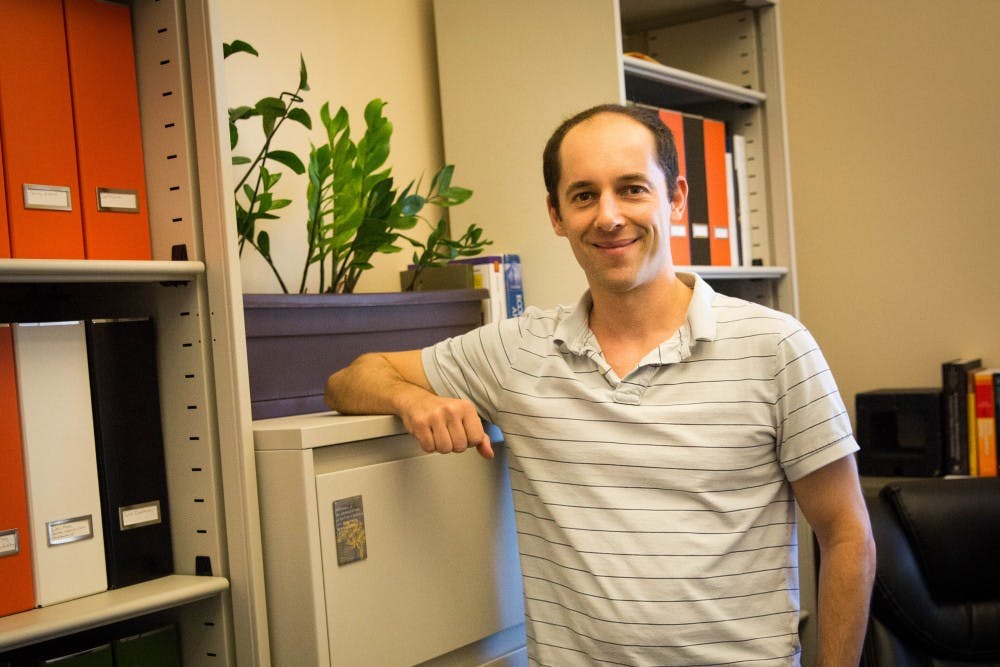While most economic ventures focus on the job market, money and resources, environmental economics is a bit different — environmental economists analyze how the environment and the economy can intermingle.
On Oct. 28, a group of ASU economists will do this same analysis with economics professors from around the country during the W.P. Carey School of Business conference focused on the advancements in environmental economics.
The conference, organized by ASU economics professors Kelly Bishop, Nicolai Kuminoff and Alvin Murphy, intends to give attendees a look into the different innovations and findings of fellow environmental economists as well as the state of environmental economics as a whole.
“Each conference, we try to bring cutting-edge frontier research,” Kuminoff said. “Specifically to present work that is new, not yet published, but at the working stage. If you look back at previous conferences we’ve had, most of the research studies we’ve presented have since been published in academic journals. The biggest purpose is to have an exchange of ideas on new and exciting research.”
For this year’s conference, Kuminoff said attendees can expect that other than showcasing new research, it will also focus on traditional environmental concerns.
“The unifying theme of the set of research studies that are going to be presented revolve around issues including carbon emissions, energy use and climate change,” he said. “A lot of the papers are focusing on different aspects of this problem. A couple of these papers focus on the automobile industry.”
With the auto industry heavily relying on fossil fuels, it isn't news that its carbon footprint has raised questions from environmentalists for years. But featured speakers James Sallee and Spencer Banzhaf will be sharing new research about the auto industry and its practices.
Sallee, an economics professor at the University of California, Berkeley, will be presenting a paper on unethical practices in Europe.
“There has been a remarkable and growing gap in the on-road performance of vehicles compared to official laboratory tests,” Sallee said. “The story is that around 2007, a bunch of policies in Europe were introduced that were all based around lab tests of vehicles’ fuel efficiency. Prior to that, the same ratings and tests were used for labels like they are in the U.S. As soon as the policies came into effect, the gap started growing to a ridiculous level. In 2014, there was a 45 percent gap between the test rating and the on-road performance.”
The gap Sallee described comes from practices in auto industry lab tests. Lab models of cars used race car tires and in some cases, parts were taken out of a car to make it lighter and more fuel efficient.
These practices had a lasting effect on the carbon footprint. Vehicles consuming nearly 50 percent more fuel than advertised caused more green house gases to form.
Spencer Banzhaf, an economics professor at Georgia State University, will also talk about the auto industry. He will be presenting a paper based around gasoline prices and fuel-efficient cars.
While there are two commonly practiced policies, Banzhaf and his colleagues say there is a third.
“There are very roughly speaking, two policy channels that nations use for trying to reduce gasoline consumption, one is the corporate average fuel efficiency, the other way to go is through a price-based policy,” Banzhaf said. “We’re saying that there’s actually a third effect that people have ignored: a matching effect.”
The matching effect is mainly the idea that cars are matched accordingly to necessity. Drivers in the most need of a fuel-efficient car are matched to more fuel-efficient vehicles. When gas prices rise, they benefit the most.
Papers that will be presented next week all have a similar purpose: to get a better grasp on environmental economics and the perpetually changing dynamic between the two concepts.
"The trick for seeing how they coexist is to realize that economics is not just about material wealth," Banzhaf said. "It's first about overall well-being, and there are a lot of immaterial, intangible spiritual factors that go into overall well-being, including the environment."
Reach the reporter at Emmillma@asu.edu or follow @Millmania1 on Twitter.
Like The State Press on Facebook and follow @statepress on Twitter.




